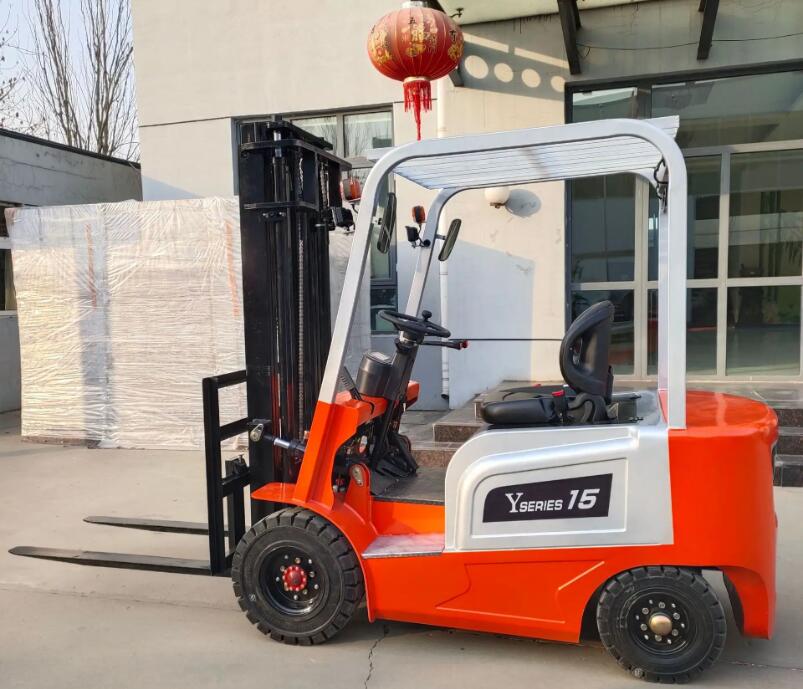24-hour hotline:+8613662168047
Keyword search: battery plant , lithium battery factory , power bank works , lifepo4 battery mill , Pallet Trucks LiFePO4 Battery, LiFePO4 Pallet Trucks Battery, Lithium Pallet Trucks Battery,
| INTRO |
| RELATED CONTENT |
| DEFINITIONS |
With such powerful chemicals involved, safety is of the utmost importance when handling both of these forklift battery types – though one of them clearly offers a safety advantage for a typical workplace. Let us examine lithium-ion vs lead acid forklift batteries as it relates to safety in the workplace.
Lead acid forklift battery safety risks:
· Spills: The highly-toxic sulfuric acid within these batteries can absolutely spill out, especially since this type of unit needs to be watered about once a week. If watering is not done safely, employees will be at risk – which necessitates a chemical washing station in the workplace.
· Overheating: These batteries get incredibly hot while they charge and can leak an explosive gas after reaching peak charge, making temperature control very important to safety. Forklift battery charging station safety must be carefully managed.
· Dangerous Gases: If lead acid batteries are over-charged, specific hazardous gases can be released into the air. Add a room that is not well ventilated, and you have an extremely hazardous situation on your hands. The three main gases that can be released are hydrogen sulfide, hydrogen, and sulfur dioxide. If it smells like rotten egg, hydrogen sulfide is the likely cause, and employees should take immediate precautions. A standard catalytic LEL gas sensor should be installed in the charging room above the level of the gas. Or, measuring the hydrogen by means of a substance-specific electrochemical sensor. Since hydrogen is lighter than air, the sensor needs to be installed in the appropriate location.
· Old or Corroded Batteries: Brand new lead acid batteries that are charged appropriately will not expose workers to the aforementioned conditions. However, old or corroded lead acid batteries are a real danger to the people working with them and should be properly disposed of immediately.
Lithium-ion forklift batteries are sealed, so there is no potential for acid spills, corrosion, sulfation, or any sort of contamination in the workplace. The chemical combination within these more-advanced batteries does pose a minuscule risk of expelling a corrosive gas when it comes in contact with water, but it is quite rare.

| 1. Lithium-Ion Technology is Powering Warehouse Automation |
| 2. Battery Management System: The Brain of the Lithium-Ion Battery Pack |
| 3. Making the Switch to Electric Forklifts: 3 Business Reasons to Convert from Internal Combustion to Lithium-ion |
| 4. Your Guide to Lithium-ion Battery Safety |
Warehouse Ergonomics: Having a functional warehouse environment that can mitigate safety risks, optimize operations, and lower costs.
Warehouse Safety: Rules & behaviors to protect warehouse employees from injury.
Battery Electrolytes: A chemical medium that allows the flow of electrical charge between the cathode and anode.
Automated Guided Vehicles (AGVs): Automated guided vehicles (AGV) are vehicles designed to perform material handling or load carrying without the use of an operator or driver. AGVs are guided by sensors, markers, tape, or wires in the facility and have a fixed navigational route.
Autonomous Mobile Robots (AMRs): Autonomous mobile robots (AMR) are more technologically advanced than AGVs. They move around the facility based on the most efficient path using sensors and cameras. AMRs can navigate around obstacles, adapt to its surroundings, and avoid anything in their way.
Battery Management System: The brain of the battery pack. It manages the operation of a battery pack. The BMS also allow users to monitor cells within a battery pack. It can provide the status and health of a battery.
Forklift Fleet Management: The best forklift fleet managers rely on a collection of data to see relevant performance information, such as state of charge, utilization, etc.
Industrial Battery Safety: Guidelines and precautions operators and technicians must take to ensure they are handling battery systems carefully.
Lead Acid Battery Off Gassing: A hazard of overcharging a battery. When a battery overcharges, the electrolyte solution can overheat cause hydrogen and oxygen gasses to form. This will increase pressure inside the battery leading to permanent damage.

Lithium Batteries ,Ensure Quality
Our lithium battery production line has a complete and scientific quality management system
Ensure the product quality of lithium batteries

Years of experience in producing lithium batteries
Focus on the production of lithium batteries

WE PROMISE TO MAKE EVERY LITHIUM BATTERY WELL
We have a comprehensive explanation of lithium batteries


QUALIFICATION CERTIFICATE
THE QUALITY OF COMPLIANCE PROVIDES GUARANTEE FOR CUSTOMERS
MULTIPLE QUALIFICATION CERTIFICATES TO ENSURE STABLE PRODUCT QUALITY
Providing customers with professional and assured products is the guarantee of our continuous progress.




Applicable brands of our products


 Service hotline
Service hotline